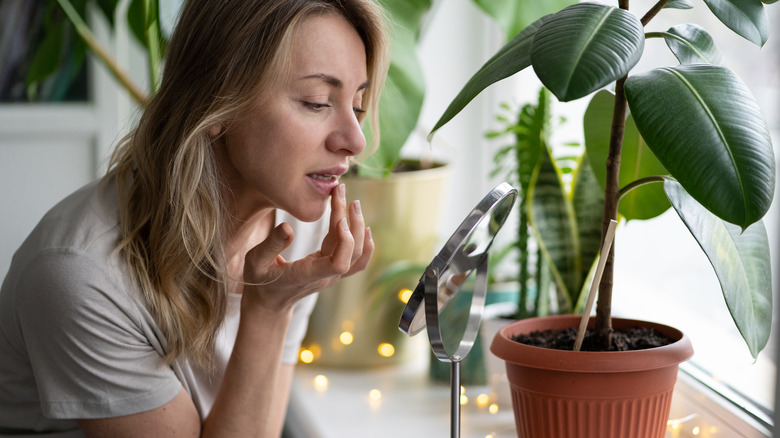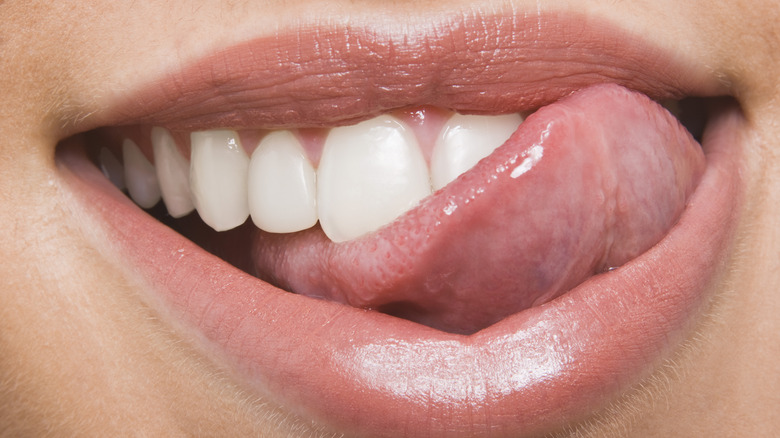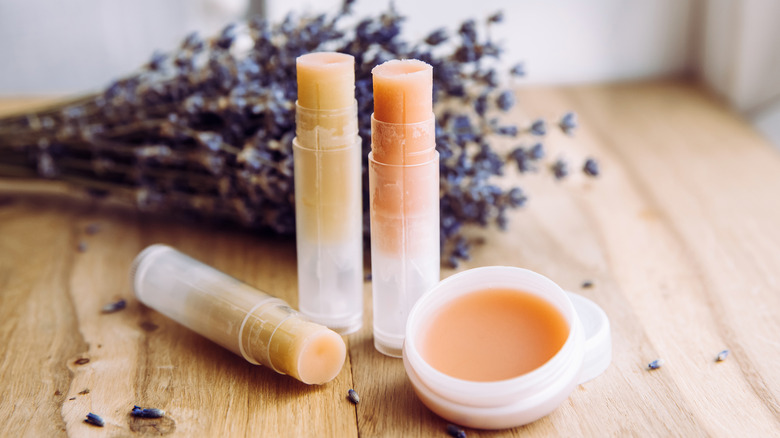The Worst Thing You Can Do When You Have Chapped Lips
If you suffer from chapped lips, you likely dread the winter since lips exposed to cold weather, wind, and the harsh outside elements can often become dry, cracked, and swell. It can range from being a mild nuisance to an incredibly painful condition.
When chapped lips crack and peel, eating can be problematic, as per Cleveland Clinic. Any spicy, salty, or citrusy food that lands on a sore spot can cause you to stop eating. Even moving chapped lips to take a bite or a sip can make you wince.
Lips tend to chap rather quickly because there aren't any oil glands in them (via Healthline). As a result, anything that can cause lips to dry out results in cracked skin. Exposure to low indoor humidity or even harsh sun rays also incite chapped lips, as well as one habit you may not even notice you're doing.
Licking your lips keeps lips chapped
When your lips lose moisture, they feel dry and uncomfortable, so it's common to lick your lips, even if to provide temporary lubrication to the area. However, it can be one of the worse things you can do. "Excessive lip-licking will cause a vicious cycle of hydration-evaporation," board-certified dermatologist Dr. Dylan Alston tells Byrdie. "This common habit will invariably leave the lips worse off than before."
According to WebMD, when you lick your lips, as the saliva evaporates, it robs moisture from the skin. This results in a fleeting few seconds of hydration followed by dehydration, and this ongoing pattern is hard on delicate lip skin. In fact, licking your lips is one of the top causes of chapped lips.
The problem is that when your lips are burning and irritated, it can be a difficult habit to break because it gives you a momentary respite from the discomfort. Yet some things work much better to prevent and treat chapped lips.
Treating chapped lips
The American Academy of Dermatology Association advises people to use a soothing lip balm that feels nourishing and healing. It shouldn't sting or burn. Some ingredients that heal damaged lips include hemp seed oil, mineral oil, shea butter, and white petroleum jelly.
The AADA encourages those with chapped lips to avoid lip balms containing camphor, eucalyptus, fragrance, lanolin, or menthol, as well as any flavoring, such as cinnamon, citrus, mint, or peppermint.
Another way to treat chapped lips is to use coconut oil, aloe vera, or honey, which are intensely soothing and are also anti-inflammatory, as per Medical News Today. Cucumber and green tea work well, too. Additionally, make sure you're well-hydrated and always drink plenty of water. Placing a cool mist humidifier in your bedroom can also bring more moisture to your skin. Steer clear of smoking which not only chaps lips but has more severe health repercussions.


